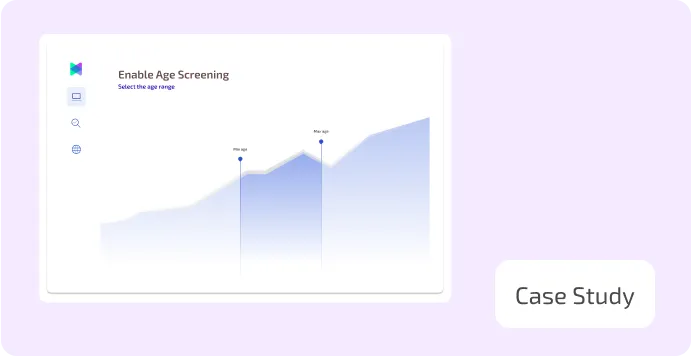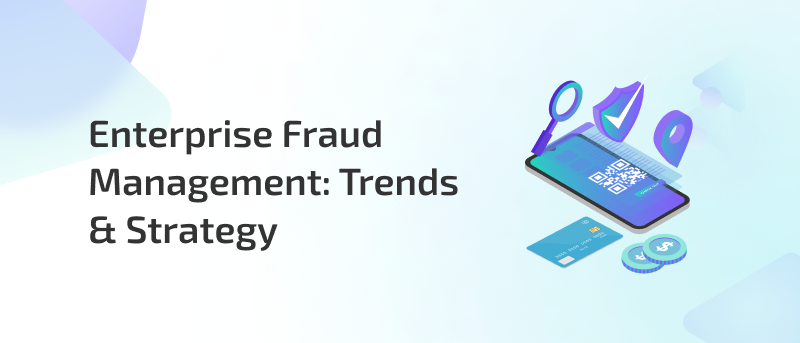.webp)
Published on
September 14, 2025
KYC Automation: Traditional Vs. Automated Processes, Use Cases, and Solutions
In this story

Accelerate AML Compliance: Meet Regulatory Demands with 80% Less Setup Time
.svg)
.svg)
If you work at a bank or any other financial institution, you know the importance of conducting Know Your Customers checks. When a customer, for example, wants to open a bank account, the bank must verify this person's identity. You need to make sure that this person is who he claims to be and that this person or entity is not connected to money laundering, drug trafficking, or any other illegal activity.
So, you would first ask this potential customer to submit official identification documents such as their passport, driver's license, utility bills, or bank statements. After that, you need to verify and review these documents to make sure the documents submitted are authentic, and there are no signs of tampering or forgery. Then, of course, you will need to conduct a background check and assess the customer's risk level.
Now, if this were done to one customer, it would be manageable, but when you have to do it to each and every single customer that deals with your bank, this can become hectic and go out of control. When talking about compliance, we don't want things to be out of control; on the contrary, the compliance requirements are there to achieve this kind of control. So what's the solution? What can you do to stay away from all this hectic situation while also following the rules and complying with AML requirements? KYC automation is your answer.
Research conducted by Harvard Business Review shows that banks and other financial service providers have the potential to lower their KYC costs by up to 70% through KYC automation.
Let’s explore automated KYC checks and KYC automation tools for your financial institution together.
What is KYC Automation?
Know Your Customer automation or KYC automation, is the process of streamlining and automating your KYC manual processes. This can be done using automated KYC solutions.
When you automate KYC processes during onboarding, you simplify gathering information and reviewing documents. You will also increase accuracy and ensure adherence to financial regulations and AML protocols.
KYC automation solutions automate the collection, verification, and storage of customer information. What's more, such tools perform real-time checks against global watchlists and sanctions lists to identify high-risk individuals or entities. So we're talking about a tool that gives you exactly what you're looking for but with more accuracy, less time, and less effort! It does enhance your operational efficiency and the overall customer experience.
Manual KYC vs Automated KYC: What’s the Difference?
The traditional methods of conducting KYC come with a number of drawbacks, such as high costs, slow turnaround time, and the prospect of human errors. The traditional approach to conducting Know Your Customer procedures buries employees with mountains of paperwork, which delays the onboarding process. This can negatively affect employees’ performance and increase the frustration levels of customers.
On the other hand, automated KYC processes defy all those challenges. KYC automation for banks and other financial institutions enables accurate verification of customer identities, the analysis of risk factors, and the flagging of any suspicious activities. This not only enhances efficiency and speed but also improves accuracy and consistency in compliance procedures.
Aseel, a pioneering real estate crowd-investing platform in Saudi Arabia, faced challenges in customer onboarding, scalability, and compliance due to manual processes. By adopting the FOCAL AML Compliance solution and automating KYC processes, Aseel successfully reduced onboarding time by 87%, now averaging just 40 seconds per customer.
This remarkable improvement enabled swift onboarding, enhanced user experience, and accelerated growth, with a staggering 250% increase in customer acquisition. FOCAL advanced technologies also enhanced risk assessments, minimized human errors, and provided proactive threat detection capabilities, positioning Aseel for operational excellence and strategic success.

Read more: KYC Compliance Requirements: Your 3-Step Action Plan in 2025
Comply quickly with local/global regulations with 80% less setup time
.svg)
.svg)
The Advantages of KYC Automation
The following are some of the advantages that employees and customers enjoy in KYC automation.
- KYC automation improves efficiency and requires the least human input. This actually allows respective teams to utilize their time to focus on more strategic tasks.
- Automated KYC solutions empower your team to enhance their overall performance and increase the accuracy and consistency of customer verification. These KYC automation solutions increase the reliability and uniformity of customers’ identification while cross-checking customer data with external databases in real-time. Real-time identity verification enables the team to proactively catch identity theft and reduce the risk of fraud in general.
- KYC automation reduces the reliance on manual labor and paper-based processes and hence leads to cost savings. This enables institutions to utilize resources more effectively and explore investment opportunities in other areas.
- Automated KYC solutions enhance the overall customer experience and simplify the onboarding process while reducing the time required to open accounts or access financial services.
Read more: A Comprehensive Guide of KYC Crypto: What is It and How is It Regulated?
17 Use Cases for KYC Automation
According to different studies, AI can:
- lower operational costs in finance by 22-25% by automating tasks and reducing mistakes (Artificial Intelligence Market Size).
- Boost productivity in financial institutions by 30-50%, allowing employees to focus on more important work.
So yes, KYC automation can eliminate boring tasks like data entry, document processing, and compliance checks. It also can be used in different cases and scenarios, which we will explore here:
- Customer Onboarding: KYC automation enables the efficient collection, verification, and authentication of customer information during the initial engagement with your business.
- Transaction Monitoring: KYC automation for banks facilitates real-time/periodic monitoring of customer transactions, and hence, you can detect and report suspicious or potentially illicit activities.
- Digital Wallets: Many users are creating digital wallets for online payments and transactions, and with KYC automation tools, you can verify their identities and continuously monitor their transactions.
- Customer Due Diligence (CDD): Customer Due Diligence is a must-have process in any financial institution, so automating the collection, verification, and risk assessment of customer information will ensure your bank’s compliance with regulatory requirements.
- Enhanced Due Diligence (EDD): If you encounter a high-risk customer or entity, you will need to conduct an in-depth risk assessment for them and/or their transactions. When you have automated KYC checks in place, the process will be fast and highly accurate.
- AML Verification: Automating the verification of customer identities and monitoring transactions for money laundering activities.
- Data Enrichment: Know Your Customer automation enables you and your team to integrate external data sources and conduct data analysis to verify and validate customer information.
- Age Verification: Automated KYC allows you to easily verify the age of customers in industries where age restrictions apply.
- Fraud Scoring: Automated KYC verification helps you to assess the likelihood of fraudulent activity based on customer behavior, transaction patterns, and historical data.
- Biometric Authentication: Without KYC automation, you won’t be able to authenticate biometric data, such as fingerprints or facial recognition, to verify customer identities and enhance security.
- Compliance Reporting: Reports are time-consuming and hence, automating generating reports on KYC compliance activities to demonstrate adherence to regulatory requirements, can be of great value.
- Sanctions Screening: With KYC automation, you will be able to screen customers against government sanctions lists and other watchlists to prevent business dealings with sanctioned individuals or entities.
- Risk-based Approach: Implement a risk-based approach to KYC compliance by automating risk assessments and tailoring compliance measures according to customer or transaction risk levels.
- Continuous Monitoring: Continuously monitor customer profiles and transaction activities to identify changes in risk levels and promptly address compliance issues.
- Cross-border Compliance: Ensure compliance with KYC regulations across multiple jurisdictions by automating the verification of customer identities and transactions conducted across borders.
- Third-party Due Diligence: Automate due diligence processes for third-party vendors, suppliers, or partners to assess their compliance with KYC requirements and mitigate associated risks.
- Regulatory Updates: Automatically update KYC processes and procedures in response to changes in regulatory requirements or industry best practices to maintain compliance and adapt to evolving regulatory landscapes.
Read more: AML Vs KYC: The Difference and Importance for Sanctions Screening
Automate Your KYC Processes with FOCAL
FOCAL, one of the best AML Compliance and Fraud Prevention platforms, offers various products to make the process of customer verification as smooth and accurate as possible. The FOCAL platform utilizes artificial intelligence and natural language processing in the identity identity verification and customer due diligence processes. The AML Compliance solution looks at customer data and spots any potential risks, and this gets done quickly and accurately. Plus, its easy-to-use interface and smooth integration with existing systems make it simple for your institution to start using automated KYC solutions.

Read more: The Best 10 KYC Software Solutions in 2025 Reviewed
Conclusion
In summary, Know Your Customer rules are crucial in the financial industry. The verification process keeps the company's domains secure and helps it avoid fines and reputational damage. When these KYC and verification processes are done manually, there is a bigger chance of human errors, longer processing times, higher operational costs, and a greater risk of inconsistent verification results. Thus, automated KYC processes reduce the friction not only between customers and the onboarding process but also between compliance requirements and operational efficiency.
The finance sector needs Know Your Customer rules to be able to keep financial institutions secure. Not only that but when these KYC and verification processes are done right, these financial institutions will ensure they don't get fined.
Moreover, in any sector, manual work is vulnerable to human errors, longer processing times, and a great risk of inconsistent verification results, and this is where companies and institutions need automation, automating KYC processes, and any process in general, will by default reduce the time consumed to do these tasks, lower costs, and minimize the friction by the company and the customer.
KYC automation is transforming how financial institutions approach compliance. FOCAL innovative technologies and automation tools streamline compliance procedures, cut costs, manage risks more effectively, and improve the customer journey.
Streamline Compliance: Achieve 80% Faster Setup for Fraud Prevention
.svg)
.svg)

How Aseel reduced onboarding time by more than 87% using FOCAL
Learn how FOCAL empowered Aseel to achieve new milestones.
.svg)
.svg)
Mastering Fraud Prevention: A Comprehensive Guide for KSA and MENA Businesses
51% of organizations fell victim to fraud in the last two years, don't be caught off guard, act proactively.
.svg)
.svg)
Featured blog posts
.svg)
AI-Driven Precision in Fraud Risk and AML Compliance
.svg)
.svg)

.svg)
.png)






.webp)




.svg)

_FastestImplementation_Small-Business_GoLiveTime.png)

_HighPerformer_Small-Business_HighPerformer.png)
_Leader_Leader.png)



%20(1).webp)